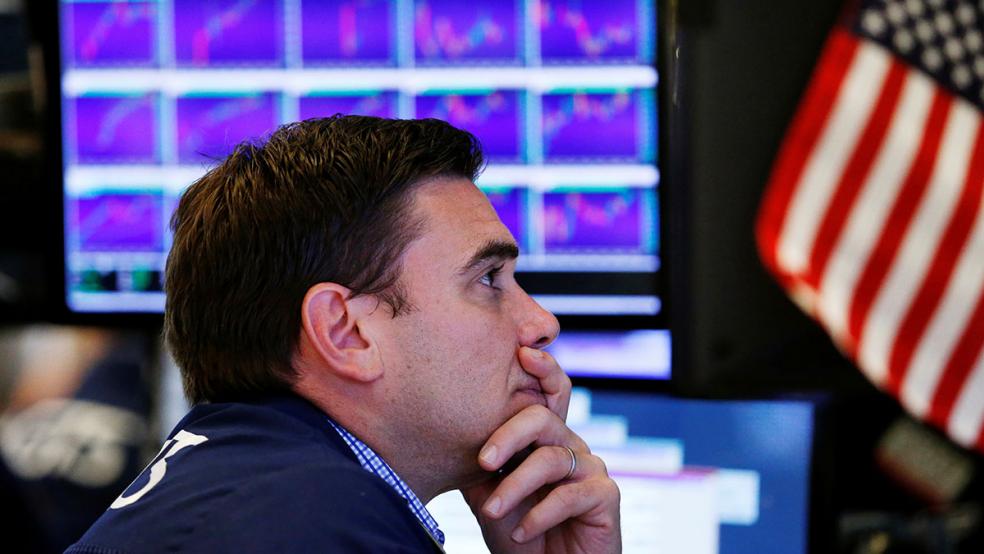The Brits have voted to quit the EU. Now what?
Anyone who answers that question with any degree of confidence is probably trying to sell you something. The only certainty at this point is that the British economy will take a serious blow and the global economy now faces more uncertainty — and will for years to come.
“Once the dust of the knee-jerk market reaction settles, we think that the UK's economy will clearly be the main victim, but also that the shock for the Euro area and the global economy is likely to be significant,” economists at Bank of America Merrill Lynch wrote to clients on Friday. “Policy responses will be needed beyond the ‘first-aid’ remedy market disruption normally requires.”
The U.S. economy will be affected, too, though just how much depends on how key sectors react.
Related: Brexit Wins -- Is President Trump Next?
“The direct fallout on the U.S. economy will be limited,” economists at the PNC Financial Services Group wrote to clients on Friday. They noted that exports to the U.K. account for less than 1 percent of U.S. GDP: “So even if the U.K. falls into recession as a result of Brexit, which PNC now views as more likely than not, the hit to U.S. exporters will be small.” Slower growth in the EU as a result of the Brexit vote could create an additional drag on the U.S. economy, but the economists say that’s likely to be small as well since exports to the Eurozone are about 2 percent of GDP.
Economists at Bank of America Merrill Lynch trimmed their forecasts for U.S. GDP in the wake of the vote. “We think Brexit will shave a few tenths off US GDP growth, with the drag showing up as early as next quarter,” they said Friday in cutting their projections for GDP growth by an average of 0.2 percentage points over the next year and a half. That leaves projected growth for 2016 at a tepid 1.8 percent, and reduces their 2017 outlook to the same level, down from 2 percent.
Still, there could be other ripple effects from the Brexit vote. “Our forecast change depends critically on the extent of the slowdown in European growth, the size of the confidence shock and the move in the dollar,” the Merrill Lynch economists note.
How businesses and consumers respond will be key — and, ultimately, whether the U.S. economy takes a more significant hit as a result of the Brexit vote may depend in large part on the severity of the market selloff and whether Wall Street anxieties spread to Main Street. “From our perspective, the keys to whether the U.S. economy is affected significantly will be whether equities tumble enough to have a major impact on business and consumer confidence and whether banks are affected such that they pull back on lending,” Jim O'Sullivan, chief U.S. economist at High Frequency Economics, wrote in a note to clients.
Related: How the Brexit Affects Your Retirement
The added uncertainty will almost certainly translate to increased volatility in the markets, first as shaken investors digest the unexpected outcome of the vote and then as they deal with its implications over time. U.S. stocks plunged 2.3 percent at the start of trading Friday, and were off 2.7 percent by mid-day.
Businesses, which have already cut back on investment and spending, could be jolted by that market volatility and pull back further, the PNC team says, and a shaky market could scare consumers:
“Greater uncertainty about the prospects for global growth and increased financial market volatility could make U.S. businesses more cautious in hiring and investing, and could make consumers less willing to spend. Uncertainty and volatility will also push investors to seek the safety of the U.S. dollar, making the currency strengthen in the near term. This will make U.S. exports abroad more expensive and imports to the U.S. less expensive, perpetuating a continued drag on U.S. growth. But domestic demand, particularly consumer spending and housing, are the primary drivers of current U.S. growth, and so the impact of the stronger dollar will be muted.”
The clouded economic outlook is also driving down U.S. interest rates and makes it less likely that the Federal Reserve will forge ahead with plans to hike its key rate any time soon. Yields on 10-year Treasuries are now down 0.17 percent in the wake of the vote, as investors flock to the safety of U.S. government bonds. If rates do stay lower for longer than expected, American businesses and consumers will find it less expensive to borrow. “This will push down mortgage rates, providing support to an already-expanding housing market,” the PNC team says.
The bottom line is that the shakeup in Europe won’t necessarily rattle the U.S.
“In the end, we don't expect these developments to be enough to stop the U.S. labor market from continuing to improve,” Sullivan of High Frequency Economics wrote. “We expect the unemployment rate will keep trending down, core inflation and wage gains will keep edging up and the Fed will be tightening again by September. Everything is on hold now pending more clarity, however.”
And that clarity won’t come for a while.





